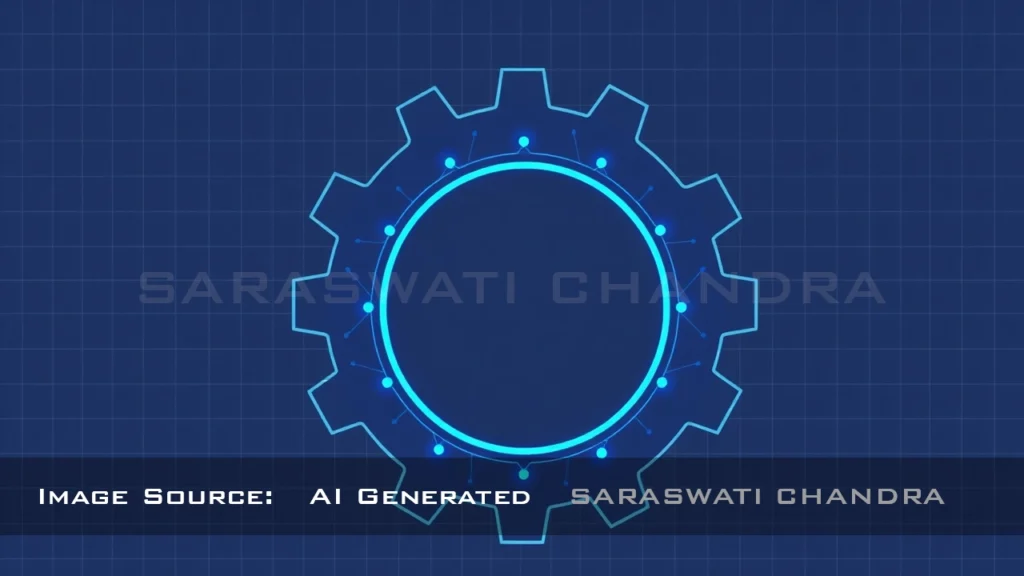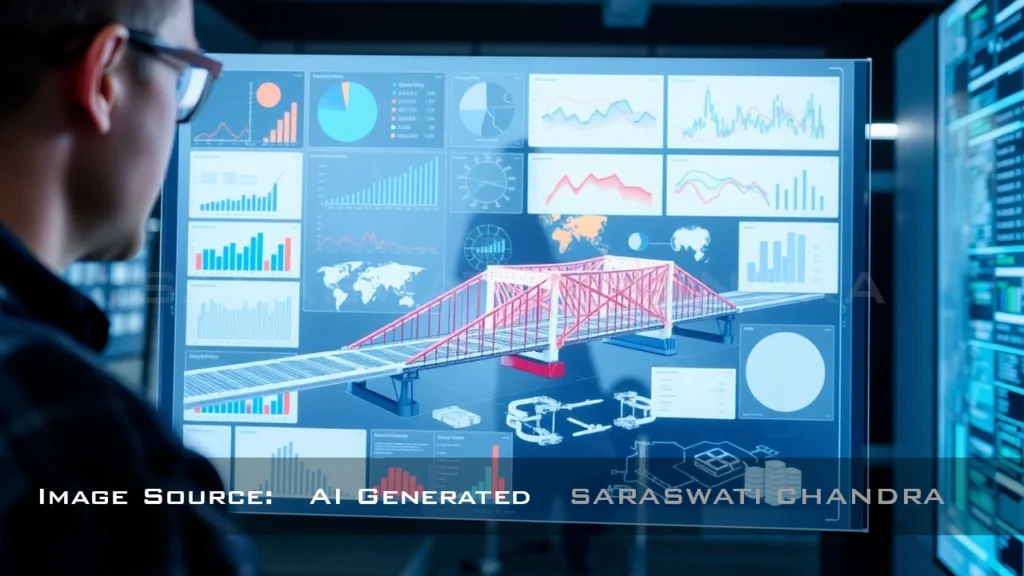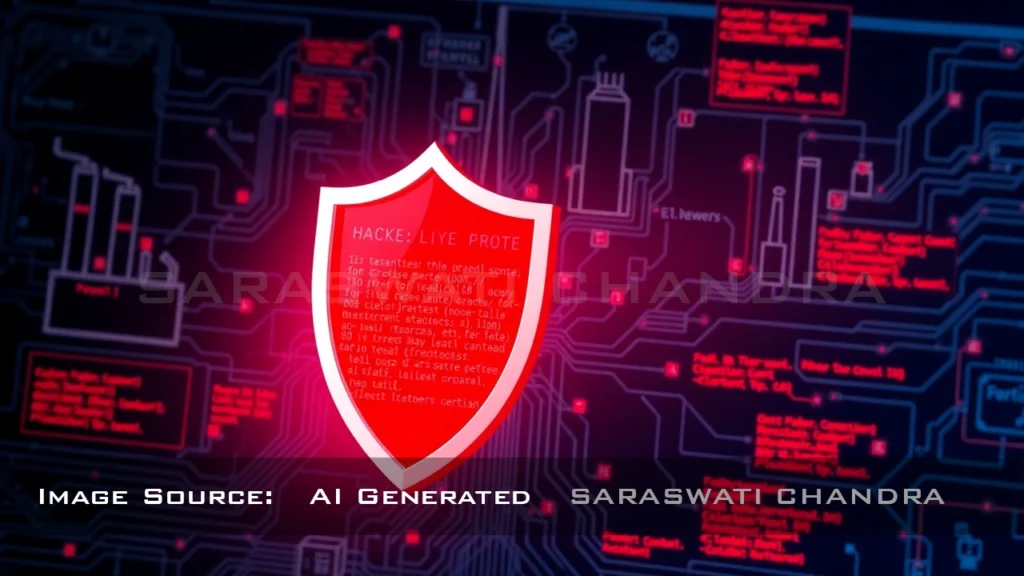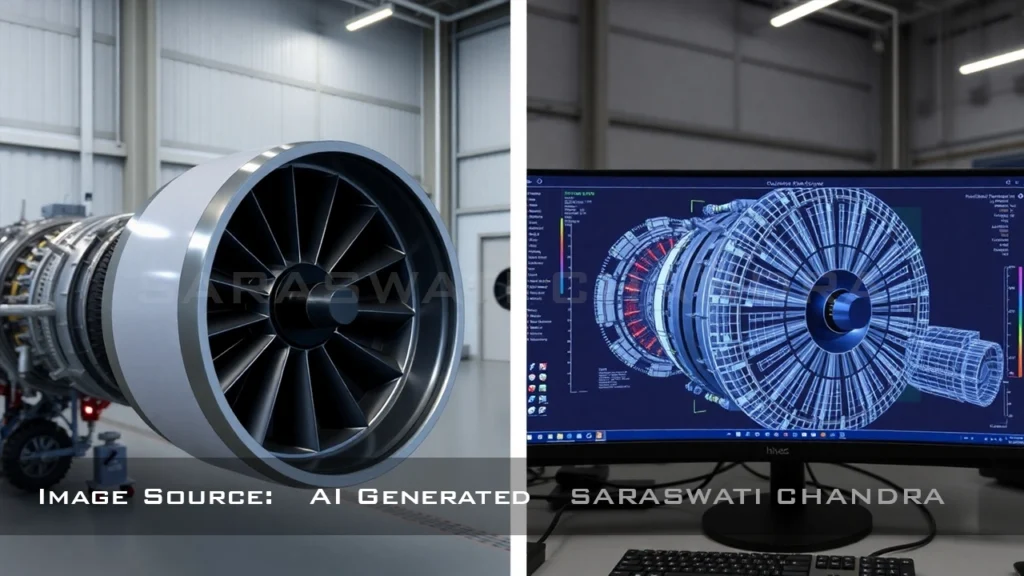The Engineer’s 2025 Survival Kit: 10 Future-Proof Skills You Need
The engineering blueprints of yesterday are becoming obsolete. Technology is advancing at an exponential rate. The skills that guaranteed a successful career just five years ago are now merely the foundation. To thrive in 2025 and beyond, you must evolve. This isn’t about discarding your core knowledge. It’s about building upon it with a new toolkit. This guide details the essential future-proof engineering skills you need to not just survive, but to lead the next wave of innovation.
Think of this as your professional survival kit. Each skill is a tool designed to tackle the challenges and opportunities of a world driven by AI, data, and sustainability. Acquiring these competencies is crucial for your engineering career growth. Without them, you risk being left behind. This article will break down the ten most critical skills, explaining why they matter and how you can start developing them today.
The Shifting Landscape of Modern Engineering
Engineering has always been a field of progress. Yet, the current pace of change is unprecedented. The Fourth Industrial Revolution is fusing the physical, digital, and biological worlds. This convergence is reshaping industries from manufacturing to civil engineering.
Traditional roles are blurring. A mechanical engineer might now need to understand data analytics to optimize a machine’s performance. A civil engineer might use AI to model the environmental impact of a new structure. Staying relevant requires a commitment to continuous learning. The skills listed below are your roadmap to staying ahead of the curve. They represent the most in-demand abilities that employers are actively seeking.
Skill #1: Artificial Intelligence & Machine Learning Basics
Artificial Intelligence (AI) and Machine Learning (ML) are no longer concepts from science fiction. They are practical tools revolutionizing the engineering discipline. Understanding them is non-negotiable.

Why Every Engineer Needs AI/ML Knowledge
You don’t need to be a data scientist. However, a foundational grasp of AI/ML principles is essential. This knowledge allows you to identify opportunities for automation, optimization, and prediction within your projects. Engineers who can speak the language of AI are invaluable. They can collaborate effectively with data teams to solve complex problems.
AI can analyze vast datasets far beyond human capability. This leads to better designs and more efficient processes. For example, AI can:
- Predict equipment failure before it happens (predictive maintenance).
- Optimize structural designs for material usage and strength.
- Simulate complex systems to test for flaws.
- Automate repetitive design tasks, freeing up engineers for creative work.
Practical Applications Across Disciplines
- Mechanical Engineering: AI algorithms optimize the thermal management of electronics. They also power robotic systems in advanced manufacturing.
- Civil Engineering: ML models predict traffic patterns to design smarter cities. They also assess the structural integrity of aging infrastructure.
- Electrical Engineering: AI helps design more efficient integrated circuits. It also optimizes power grid distribution for reliability.
- Chemical Engineering: Machine learning accelerates the discovery of new materials. It also optimizes chemical processes for yield and safety.
Developing these skills means you can leverage these powerful tools. You become an engineer who doesn’t just build things but builds smarter things.
Skill #2: Prompt Engineering
If AI is the engine, prompt engineering is the steering wheel. It is the art and science of crafting effective instructions for AI models, especially large language models (LLMs) like GPT-4.
The New Frontier of Human-AI Interaction
As AI becomes more integrated into engineering workflows, communicating with it effectively is a critical skill. A well-crafted prompt can be the difference between a generic, useless response and a precise, actionable solution. This is one of the most immediate future-proof engineering skills you can develop.
Engineers use prompts to:
- Generate boilerplate code in various programming languages.
- Brainstorm innovative solutions to design challenges.
- Summarize dense technical research papers in seconds.
- Draft technical documentation, reports, and emails.
- Translate complex engineering concepts into simple language for non-technical stakeholders.
Mastering the Craft of the Prompt
Good prompt engineering is about being clear, concise, and context-rich. It involves understanding how the AI “thinks” and providing it with the necessary information to generate a high-quality output. This includes specifying the desired format, tone, and level of detail. As AI tools become standard, the engineers who can wield them most effectively will have a significant competitive advantage.
Skill #3: Sustainable and Green Engineering Practices
The world is facing urgent environmental challenges. From climate change to resource depletion, the demand for sustainable solutions has never been higher. Engineers are at the forefront of this movement.

Meeting the Global Demand for Eco-Friendly Solutions
Sustainable engineering is not a niche field anymore. It is a core principle that must be integrated into all engineering disciplines. It involves designing products, processes, and systems that minimize environmental impact. This is achieved through a focus on the entire lifecycle of a project.
Key principles of green engineering include:
- Energy Efficiency: Designing buildings, machines, and systems that consume less power.
- Material Selection: Choosing renewable, recyclable, or biodegradable materials.
- Waste Reduction: Implementing circular economy principles to minimize waste.
- Lifecycle Assessment (LCA): Analyzing the environmental impact of a product from creation to disposal.
A Core Component of Engineering Career Growth
Companies are under increasing pressure from regulators and consumers to be more sustainable. They need engineers who can design eco-friendly products and create greener supply chains. Knowledge of standards like ISO 14001 and certifications like LEED (Leadership in Energy and Environmental Design) is highly valuable. This skill is not just good for the planet; it’s great for your career.
Skill #4: Programming & Automation
In the digital age, software is eating the world. For engineers, this means that programming and automation skills are more critical than ever.
Mastery Beyond the Basics
While many engineers learn some coding in college, the future demands deeper fluency. Python has emerged as a dominant language in the engineering world due to its simplicity and powerful libraries for data analysis, machine learning, and automation.
Beyond Python, proficiency in domain-specific software is crucial. This includes:
- Advanced CAD/CAM Software: Tools like SolidWorks, AutoCAD, and Fusion 360 are standard. Mastery includes using their automation and simulation features.
- Robotics Integration: Understanding how to program and integrate robots (like those from FANUC or KUKA) into manufacturing lines.
- Scripting for Automation: Writing scripts to automate repetitive tasks, such as data processing, report generation, or software testing.
The Power of Automation
Automation frees you from tedious, low-value work. This allows you to focus on the complex, creative problem-solving that humans excel at. An engineer who can write a script to automate a ten-hour task is ten times more valuable than one who does it manually. This skill directly translates to increased productivity and innovation.
Quick Poll: Assess Your Future-Readiness!
Which of these future-proof skills are you most focused on developing right now?
A) Artificial Intelligence & ML
B) Prompt Engineering for AI Tools
C) Sustainable & Green Design
D) Programming & Automation
(Share your letter in the comments section below!)
Skill #5: Data Analysis and Interpretation
We are drowning in data. From IoT sensors on a factory floor to performance metrics from a software application, engineers have access to more information than ever before. The ability to turn this raw data into actionable insights is a superpower.

Turning Big Data into Smart Decisions
Data analysis for engineers isn’t just about creating charts. It’s about asking the right questions and using data to find the answers. This involves understanding statistical concepts, data visualization techniques, and tools for data manipulation.
An engineer skilled in data analysis can:
- Identify bottlenecks in a manufacturing process.
- Analyze test data to validate a new design.
- Use sensor data to monitor the health of a bridge or building.
- Correlate user behavior with product performance to drive improvements.
Essential Tools of the Trade
Proficiency in tools like MATLAB, Excel (at an advanced level), and data visualization platforms like Tableau or Power BI is highly sought after. Combining these tool skills with your core engineering knowledge allows you to make evidence-based decisions, reducing guesswork and improving outcomes.
Skill #6: Cybersecurity Awareness
As engineering systems become more connected, they also become more vulnerable. A smart factory, a connected car, or a modern power grid are all potential targets for cyberattacks.

Protecting Critical Systems in an Interconnected World
Engineers are the architects of these connected systems. Therefore, they must also be their first line of defense. Cybersecurity awareness is no longer just the IT department’s responsibility. It is a fundamental engineering requirement.
This involves understanding:
- Common Vulnerabilities: Recognizing potential weaknesses in software, hardware, and networks.
- Secure Design Principles: Building security into a system from the very beginning (“security by design”).
- Network Security Basics: Understanding concepts like firewalls, encryption, and secure communication protocols.
- Threat Modeling: Identifying potential threats and designing countermeasures.
Why It’s a Crucial Engineering Skill
A single security breach can lead to catastrophic failures, financial loss, and even physical harm. An engineer who understands cybersecurity can prevent these disasters. They design more robust and resilient systems. This skill is particularly critical in fields like industrial control systems (ICS), IoT, and automotive engineering.
Skill #7: Interdisciplinary Collaboration
The era of the siloed engineer is over. The most complex and innovative projects of our time require expertise from multiple fields. Think of developing a self-driving car. It requires mechanical, electrical, software, and AI engineers to work together seamlessly.
Working Seamlessly Across Diverse Teams
Interdisciplinary collaboration is the ability to communicate and work effectively with people outside your own area of expertise. This requires empathy, a willingness to learn, and the ability to translate your technical concepts into language that others can understand.
This skill is essential for:
- Agile and Scrum Teams: Working in rapid, iterative cycles with product managers, designers, and software developers.
- Systems Engineering: Understanding how all the different components of a complex system fit together.
- Innovation Hubs: Collaborating in fast-paced environments to bring new ideas to life.
Engineers who can bridge the gap between different disciplines are natural leaders. They can see the bigger picture and ensure that all parts of a project are aligned toward a common goal. This is a vital component of successful engineering career growth.
Skill #8: Soft Skills: Communication & Project Management
Technical brilliance alone is not enough. The most successful engineers are also excellent communicators and effective project managers. These “soft skills” are often the differentiator between a good engineer and a great one.
The Essential Non-Technical Toolkit
Communication: This is more than just writing reports. It’s about:
- Presenting complex ideas clearly to both technical and non-technical audiences.
- Active listening to understand the needs of clients and team members.
- Writing concise and clear documentation, emails, and proposals.
- Negotiating and persuading stakeholders to support your ideas.
Project Management: This is the discipline of planning, executing, and closing projects successfully. It involves:
- Defining scope, budget, and timelines.
- Managing resources (people, materials, and equipment).
- Identifying and mitigating risks.
- Using methodologies like Agile or Waterfall to keep projects on track.
These skills are essential for leadership. An engineer who can manage a project from concept to completion is incredibly valuable. Certifications like PMP (Project Management Professional) or CSM (Certified ScrumMaster) can formally validate these abilities.
Skill #9: Adaptability & Lifelong Learning
If there is one meta-skill that underpins all others, it is adaptability. The technologies and methodologies that are cutting-edge today may be standard tomorrow and obsolete the day after.
Staying Flexible in an Ever-Changing Tech Landscape
The most important of all future-proof engineering skills is the mindset of a lifelong learner. Your degree is the starting line, not the finish line. Adaptability means embracing change, being curious, and proactively seeking out new knowledge.
How to cultivate adaptability:
- Stay Curious: Read industry publications, follow thought leaders, and attend webinars.
- Embrace New Tools: Don’t be afraid to experiment with new software or technologies.
- Seek Feedback: Be open to constructive criticism and see it as an opportunity for growth.
- Build a Learning Habit: Dedicate a few hours each week to learning something new, whether through online courses, tutorials, or personal projects.
The engineer of the future is not someone who knows everything. They are someone who knows how to learn anything. This flexibility will ensure your relevance and value for decades to come.
Skill #10: Digital Twin and Simulation Technologies
Imagine having a perfect, real-time virtual replica of a physical asset. A jet engine, a factory, or even an entire city. This is the power of digital twin technology. It is one of the most transformative trends in engineering.

The Future of Design, Testing, and Operations
A digital twin is a dynamic virtual model that is continuously updated with data from its physical counterpart. This allows engineers to:
- Simulate Performance: Test how a product will behave under different conditions without building a physical prototype.
- Optimize Operations: Run “what-if” scenarios on a virtual factory to find efficiency gains.
- Conduct Predictive Maintenance: Use the digital twin to predict failures on the real-world asset.
- Train Personnel: Allow operators to train on a virtual model in a safe environment.
A Convergence of Key Skills
Digital twin technology brings together many of the skills on this list. It requires knowledge of CAD, data analysis, IoT, and AI. Engineers who understand how to create and leverage digital twins can drastically reduce costs, accelerate development cycles, and improve the performance of physical systems. This is the pinnacle of modern, data-driven engineering.
Frequently Asked Questions (FAQ)
Q1: What is the single most in-demand skill for engineers in 2025?
While all ten skills are crucial, a foundational understanding of Artificial Intelligence and Machine Learning is arguably the most transformative. It acts as a force multiplier for all other engineering disciplines, from design optimization to predictive analysis. It is rapidly becoming a core competency.
Q2: Is coding absolutely necessary for all engineers now?
While not every engineer will be a full-time software developer, a basic level of coding proficiency, especially in a language like Python, is becoming essential. It enables automation of repetitive tasks and allows for more effective data analysis, making you a significantly more efficient and capable engineer.
Q3: How can I start learning these future-proof engineering skills?
Start small and be consistent. Pick one skill from this list that excites you. Use online platforms like Coursera, edX, or Udemy for structured courses. Work on a small personal project to apply what you’ve learned. For example, learn Python by writing a script to analyze a public dataset. The key is to start now.
Q4: Are soft skills really as important as technical skills for engineers?
Absolutely. In today’s collaborative work environments, soft skills like communication and project management are what elevate a technically competent engineer to a leadership role. You can be the most brilliant designer in the world, but if you can’t communicate your vision or manage a project, your impact will be limited.
Q5: What is the best way to future-proof my engineering career?
The best way is to adopt a mindset of adaptability and lifelong learning. Technology will always change. By committing to continuously updating your skills, staying curious about new trends, and being open to new ways of working, you ensure that you are always valuable, no matter what the future holds.
Your Next Move: Build Your 2025 Toolkit
The future of engineering is not something to be feared. It is an incredible opportunity for those who are prepared. The ten skills outlined in this guide are your roadmap to not just staying relevant but becoming a leader in this exciting new era. They are the core of a modern engineer’s survival kit.
Your journey starts with a single step. Choose one skill from this list. Find a course, read a book, or start a project. The key is to take action now. Investing in these future-proof engineering skills is the single best investment you can make in your career.
What skill are you committed to learning first? Which one do you think is most critical for your specific field?
Share your thoughts and learning journey in the comments below. Let’s build a community of future-ready engineers together!
This article provides general information and insights based on current industry trends. The skills and technologies mentioned are subject to change. Readers should conduct their own research and consider their specific career goals when making decisions about professional development. The author and publisher are not liable for any career outcomes resulting from the information presented.

